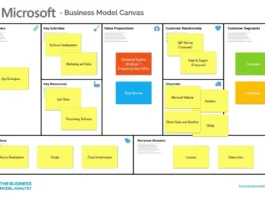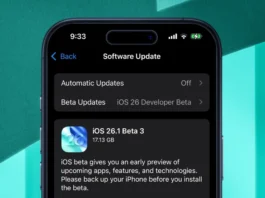It’s that time of year again, folks – Apple’s latest product releases are here, and as always, the tech world is buzzing. But this time, the excitement comes with a side of drama. Because here’s the thing: Apple’s recent moves are putting it on a collision course with two tech titans: Meta and Google. It’s like watching a slow-motion chess match, and the stakes are ridiculously high.
Why Apple’s Strategy Matters

So, why is Apple , a company known for its sleek devices and loyal following, suddenly ruffling feathers? Well, let’s break it down. Apple’s been doubling down on privacy, remember? They’ve been pushing features like App Tracking Transparency (ATT) and stronger encryption, which, while great for users (like you and me!), are making life difficult for companies like Meta and Google that rely heavily on targeted advertising.
Think about it: Meta’s entire business model hinges on collecting user data to serve personalized ads. And Google , while diversifying, still relies heavily on advertising revenue. Apple’s privacy-focused initiatives are basically cutting off their oxygen supply, making it harder for them to track users and deliver effective ads. I initially thought this was just about privacy, but then I realized it’s also about control. Apple wants to be the gatekeeper, the one who decides how user data is used. AsWikipediadescribes, Apple is a dominant force in the technology industry, and this power play is just another example of their influence.
But it’s not just about advertising. Apple’s also expanding into new areas, like augmented reality (AR) and virtual reality (VR), where Meta and Google are also making big bets. This creates even more competition and potential for conflict. Let me rephrase that for clarity: we’re talking about a battle for the future of technology, and Apple is determined to be a major player.
The Privacy Pushback and Its Impact
Apple’s privacy stance has been a double-edged sword. On one hand, consumers are applauding the company for standing up for their rights. But on the other hand, it’s causing major headaches for developers and advertisers. A common mistake I see people make is underestimating the ripple effect of these changes. The shift to privacy-centric practices is forcing companies to rethink their entire business strategies. What fascinates me is how different companies are adapting.
Meta, for instance, has been quite vocal about its displeasure with Apple’s ATT feature, claiming it’s hurting small businesses that rely on targeted ads. But and this is a big but, they’re also investing heavily in new technologies, like the metaverse, which they hope will give them more control over user data. Google, meanwhile, is exploring alternative advertising models that don’t rely as much on tracking individual users. According to various industry reports, the impact on advertising revenue has been significant, with some estimates suggesting billions of dollars in losses for companies reliant on targeted ads. Now, I am not sure about the exact amount. But this does give us an estimate.
Apple’s Hardware Advantage
Let’s be honest, Apple has a significant advantage over Meta and Google: its control over both hardware and software. This gives them a level of integration that others can only dream of. Think about the seamless way your iPhone works with your AirPods or your MacBook. That’s not an accident; it’s the result of meticulous design and engineering. And it’s one of the reasons whyApple users are so loyal.
What I’m saying is: Apple’s integrated ecosystem allows them to offer privacy features that are simply not possible for companies that rely on third-party platforms. For example, Apple can bake privacy controls directly into its operating system, making it harder for apps to track users without their consent. Meta and Google, on the other hand, have to rely on browser settings and other workarounds, which are often less effective.
But it’s not just about privacy. Apple’s hardware advantage also allows them to innovate in other areas, like augmented reality. The company’s ARKit framework is widely regarded as one of the best in the industry, and it’s powering a growing number of AR apps. This gives Apple a head start in the race to build the next generation of computing platforms. And this might give them a future competitive advantage.
So, consider the competition in augmented reality which is intensifying, with Apple, Meta, and Google all vying for dominance. As the demand for immersive experiences grows, the stakes are higher than ever.
The Road Ahead | Collaboration or Continued Conflict?
The tension between Apple, Meta, and Google isn’t going away anytime soon. These companies are all competing for the same users, the same advertising dollars, and the same slice of the future. The question is, will they find a way to collaborate, or will the conflict escalate?
I initially thought this was a zero-sum game, but then I realized that there are areas where these companies could potentially work together. For example, they could collaborate on developing privacy standards that benefit both users and advertisers. They could also partner on new technologies, like AR and VR, to create more immersive and engaging experiences.
But let’s be real, the incentives for collaboration are limited. Apple is fiercely protective of its ecosystem, and Meta and Google are unlikely to give up their control over user data without a fight. So, my guess is that we’re in for more conflict in the years to come. Apple’s innovative approach to design and user experience continues to set the standard. Don’t forget to also check outAI news.
FAQ About Apple, Meta, and Google’s Conflict
Why is Apple so focused on privacy?
Apple believes that privacy is a fundamental human right and that users should have control over their data. Their privacy features are also a competitive advantage, differentiating them from companies that rely on data collection.
How is Apple’s privacy push affecting Meta and Google?
Apple’s privacy features are making it harder for Meta and Google to track users and deliver targeted ads, which is impacting their advertising revenue.
Could Apple, Meta, and Google ever collaborate?
While there are potential areas for collaboration, the incentives are limited due to competition and differing business models.
What does this conflict mean for the future of technology?
This conflict highlights the growing tension between privacy and personalization, and it will likely shape the future of technology as companies grapple with these competing priorities.
Is there a chance that Apple will back down on privacy?
It’s highly unlikely. Privacy has become a core part of Apple’s brand and strategy, and they’re unlikely to compromise on it.
So, what’s the final takeaway? Apple’s battle with Meta and Google is more than just a corporate squabble. It’s a glimpse into the future of technology, where privacy, competition, and innovation are all colliding. And in the end, it’s the users – like you and me – who will ultimately decide who wins.



